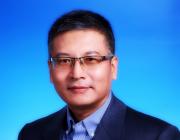Dear Colleagues, We are very pleased to announce that the 3rd International Conference on Computational Engineering and Science for Safety and Environment Problems (COMPSAFE 2020, organized by JSCES* and JACM**, an APACM*** Thematic Conference and an IACM**** Special Interest Conference, https://compsafe2020.org/) will be held at Kobe, from March 8th to 11th, 2020. The conference venue is the Kobe International Conference Center, Kobe, Japan. *JSCES: Japan Society of Computational Engineering and Sciences **JACM: Japan Association for Computational Mechanics ***APACM: Asian Pacific Association for Computational Mechanics ****IACM: International Association for Computational Mechanics The major objective of COMPSAFE 2020 is to bring together researchers, scientists and engineers from all over the world, who fight daily in the field of disaster prevention and mitigation, structural and material failure, safety and security maintenance, and so on. The topics of COMPSAFE 2020 include, but are not limited to: computational mechanics, computational engineering and science technologies, and their applications related to (1) safety- / risk-related, disaster-preventing topics including various types of natural hazards such as earthquake, tsunami, typhoon / hurricane / cyclone, flood, explosion of volcano, land slide, (2) any kinds of accidents and failures of engineering artifacts such as fractures, crashes, explosion, and (3) environmental and social problems such as air / water pollution, material failures, radioactive contamination, global environment problems, evacuation and so on. Abstract submission for COMPSAFE 2020 is now open. Colleagues related to topics above are invited to submit one-page abstract before October 31, 2019. The submission of abstracts should be performed online. https://compsafe2020.org/ If you require more information, please do not hesitate to contact to: secretary@compsafe2020.org. We thank you in advance for your interest and cooperation towards the success of the COMPSAFE 2020, and look forward to welcoming you in Kobe. Best regards, Daigoro Isobe, Conference Chair, University of Tsukuba, Japan Hiroshi Okada, Vice Chair, Tokyo University of Science, Japan Yuichi Tadano, Secretary General, Saga University, Japan COMPSAFE 2020 website: https://compsafe2020.org/ Histories of COMPSAFE (International Conference on Computational Engineering and Science for Safety and Environment Problems, an APACM Thematic Conference and an IACM Special Interest Conference: 1st Conference: 13-16 April, 2014 / Sendai International Center, Sendai, Japan Chairmen: Professor Kazuo Kashiyama (Chuo Univ., Japan) and Professor Shinobu Yoshimura (Univ. Tokyo, Japan) 2nd Conference: 15-18 October, 2017 / InterContinental Century City Chengdu, Chengdu, China Chairmen: Professor Mingwu Yuan (Peking University, China) and Professor Zhuo Zhuang (Tsinghua University, China) Objectives of COMPSAFE 2020: **** Following the success of the first conference held in Sendai, Japan, during April 2014, and the second conference held in Chengdu, China, during October 2017, the Japan Society of Computational Engineering and Science (JSCES) and the Japan Association for Computational Mechanics (JACM) will jointly host the 3rd International Conference on Computational Engineering and Science for Safety and Environmental Problems (COMPSAFE2020) which will be held during March 8-11, 2020, in Kobe, Japan. This conference series is an APACM Thematic Conference and an IACM Special Interest Conference, aimed to bring together researchers and scientists from all over the world, who fight daily in the field of disaster prevention and mitigation, structural and material failure, safety and security maintenance, and so on. Other main topics of the conference include, but are not limited to: computational mechanics, computational engineering and science technologies, and their applications related to (1) safety- / risk-related, disaster-preventing topics including various types of natural hazards such as earthquake, tsunami, typhoon / hurricane / cyclone, flood, explosion of volcano, land slide, (2) any kinds of accidents and failures of engineering artifacts such as fractures, crashes, explosion, and (3) environmental and social problems such as air / water pollution, material failures, radioactive contamination, global environment problems, evacuation and so on. We hope this conference will play a role of creating networks between academia and industries and push forward the technologies in those fields. ****
九月 30, 2019
